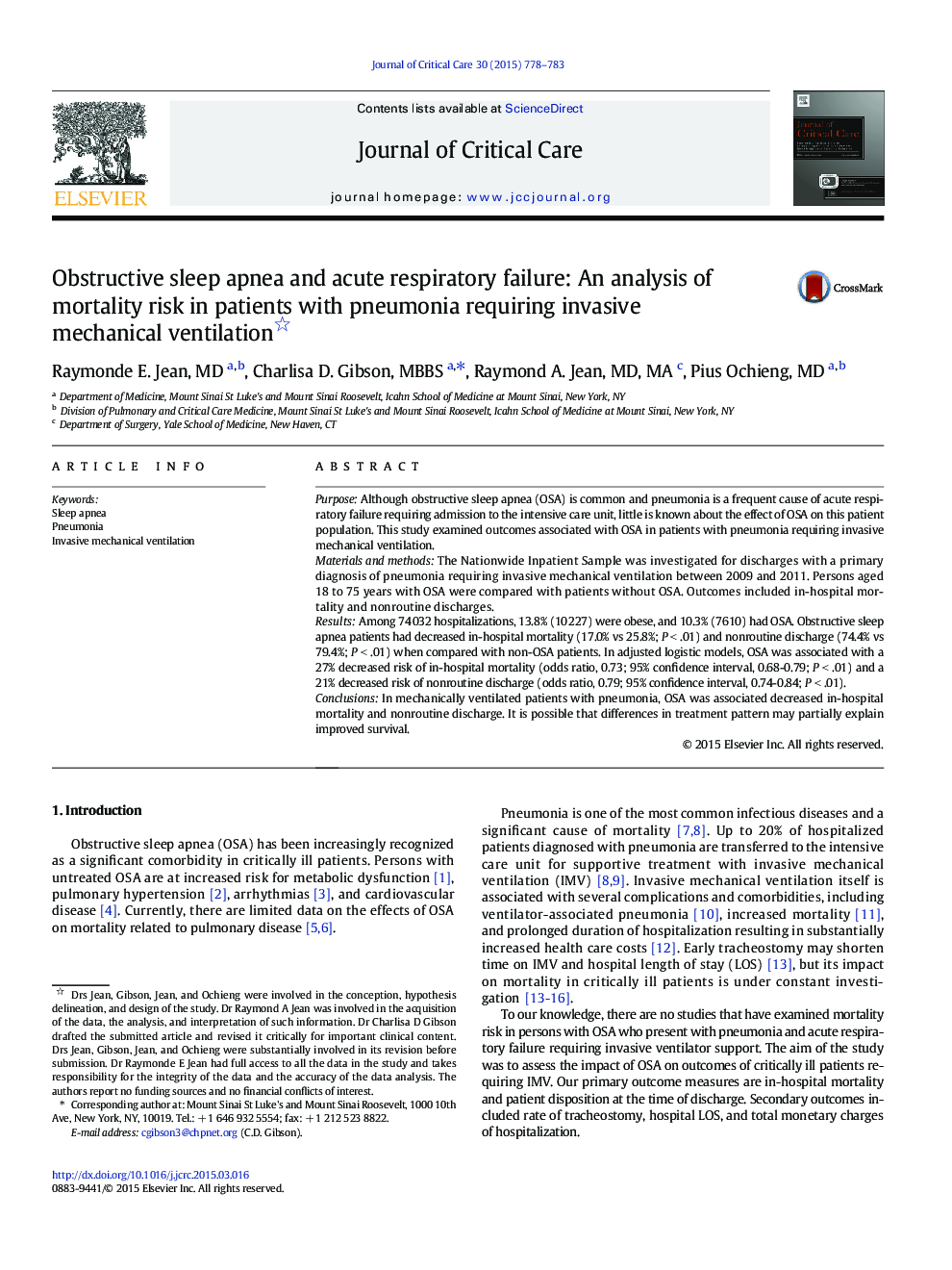| Article ID | Journal | Published Year | Pages | File Type |
|---|---|---|---|---|
| 2764532 | Journal of Critical Care | 2015 | 6 Pages |
PurposeAlthough obstructive sleep apnea (OSA) is common and pneumonia is a frequent cause of acute respiratory failure requiring admission to the intensive care unit, little is known about the effect of OSA on this patient population. This study examined outcomes associated with OSA in patients with pneumonia requiring invasive mechanical ventilation.Materials and methodsThe Nationwide Inpatient Sample was investigated for discharges with a primary diagnosis of pneumonia requiring invasive mechanical ventilation between 2009 and 2011. Persons aged 18 to 75 years with OSA were compared with patients without OSA. Outcomes included in-hospital mortality and nonroutine discharges.ResultsAmong 74 032 hospitalizations, 13.8% (10 227) were obese, and 10.3% (7610) had OSA. Obstructive sleep apnea patients had decreased in-hospital mortality (17.0% vs 25.8%; P < .01) and nonroutine discharge (74.4% vs 79.4%; P < .01) when compared with non-OSA patients. In adjusted logistic models, OSA was associated with a 27% decreased risk of in-hospital mortality (odds ratio, 0.73; 95% confidence interval, 0.68-0.79; P < .01) and a 21% decreased risk of nonroutine discharge (odds ratio, 0.79; 95% confidence interval, 0.74-0.84; P < .01).ConclusionsIn mechanically ventilated patients with pneumonia, OSA was associated decreased in-hospital mortality and nonroutine discharge. It is possible that differences in treatment pattern may partially explain improved survival.
